*NEW* Google Analytics User Data Export to Google BigQuery: Unleash the Power of User Insights!

In today's privacy-focused landscape, where third-party cookies are becoming obsolete, the prominence of first-party (consented) data is undeniable. As the realm of Marketing Analytics grows, so does the necessity for businesses to tap into user attributes and behaviors. It's all about making educated decisions and fine-tuning strategies. And what better way to achieve this than with Google Analytics's User Data that could be NOW exported to BigQuery
Now you could export 2 completely new Tables into BigQuery from GA4
GA4 User Data Export: An Insightful Goldmine
By enabling GA4 User Data Export to BigQuery, businesses can seamlessly export user-centric data. This vast pool of information gives a deep dive into user properties, geographical attributes, device specifics, and vital user lifetime statistics. It's a step forward in decoding user behaviors, patterns, and preferences.

Guide to Enabling this Export: Your Pathway to GA4 User Data Export
To harness this power, the activation process is quite straightforward:
- Sign in to your Google Analytics account and head to the Admin section.
- Choose the property you wish to configure for data export.
- In the Property column, select "Data Streams" found under the "Data" heading.
- Click the data stream linked with your GA4 property.
- Navigate to the "Configuration" section, and select "Edit".
- Within the "Data Export" segment, turn on the "Enable data export" option.
- Pick your BigQuery project from the list or set up a new one.
- Define or select a dataset in BigQuery for data export.
- Hit "Save", and voila, you're all set.
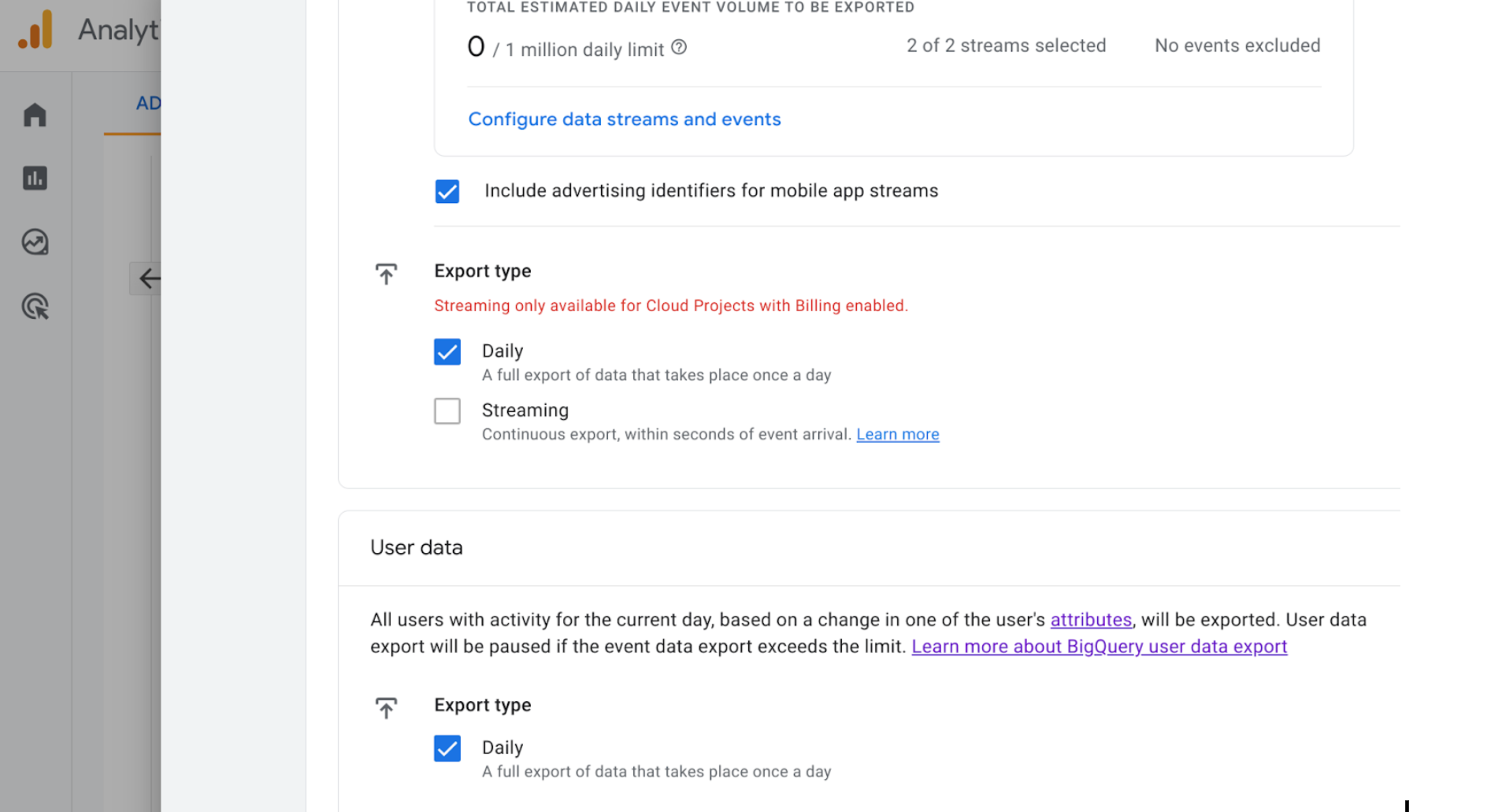
Screenshot from my GA4 Settings page
After activation, your GA4 property starts pouring user data into BigQuery. This data encompasses user properties like demographics, interests, device specifics, geographical insights, and essential user lifetime data.
Moreover, the GA4 User Data Export isn't just confined to basic user attributes. It magnifies your understanding by exporting audience details and predictions. This broadens your scope, allowing integration of audience data from beyond Google's ecosystem. It's a golden opportunity to refine your targeting and enrich your personalization efforts. Merging this external data with your existing analytics in BigQuery, you're equipped to craft powerful customer segments and elevate your marketing strategies.
Data tables
When you export user data, Analytics creates two new tables in your BigQuery project:
Pseudo ID- Contains a row for every pseudonymous identifier. Data for a user is updated when there is a change to one of the fields.
- Data for unconsented users is not exported to this table.
- User IDs are not exported to this table.
- The last active timestamp is exported to this table.
User ID- Contains a row for every user ID. Data for a user is updated when there is a change to one of the fields.
- Data for unconsented users can be exported to this table if it includes a user ID.
- Pseudo IDs are not exported to this table
- The last active timestamp is exported to this table.
Interesting Fields at Your Disposal:

Predictive Data:
This goldmine lets businesses make informed predictions regarding prospective user actions. Leveraging historical trends, companies can pinpoint forthcoming opportunities or potential pitfalls. This predictive edge ensures businesses remain proactive, tweaking their strategies for maximum impact.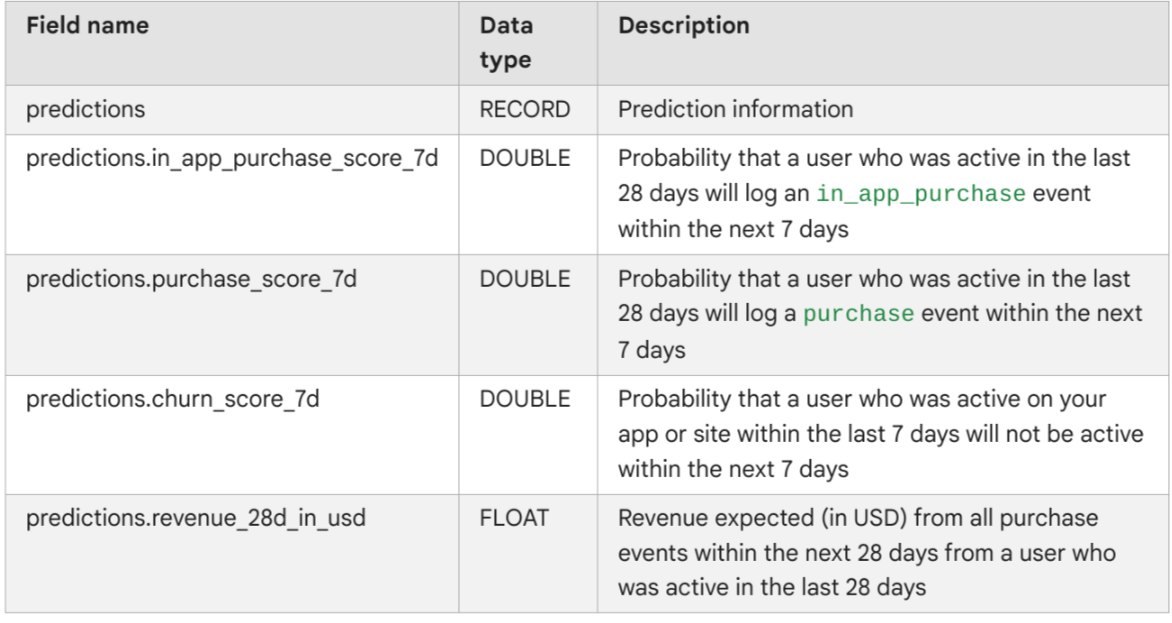
Audience Related:
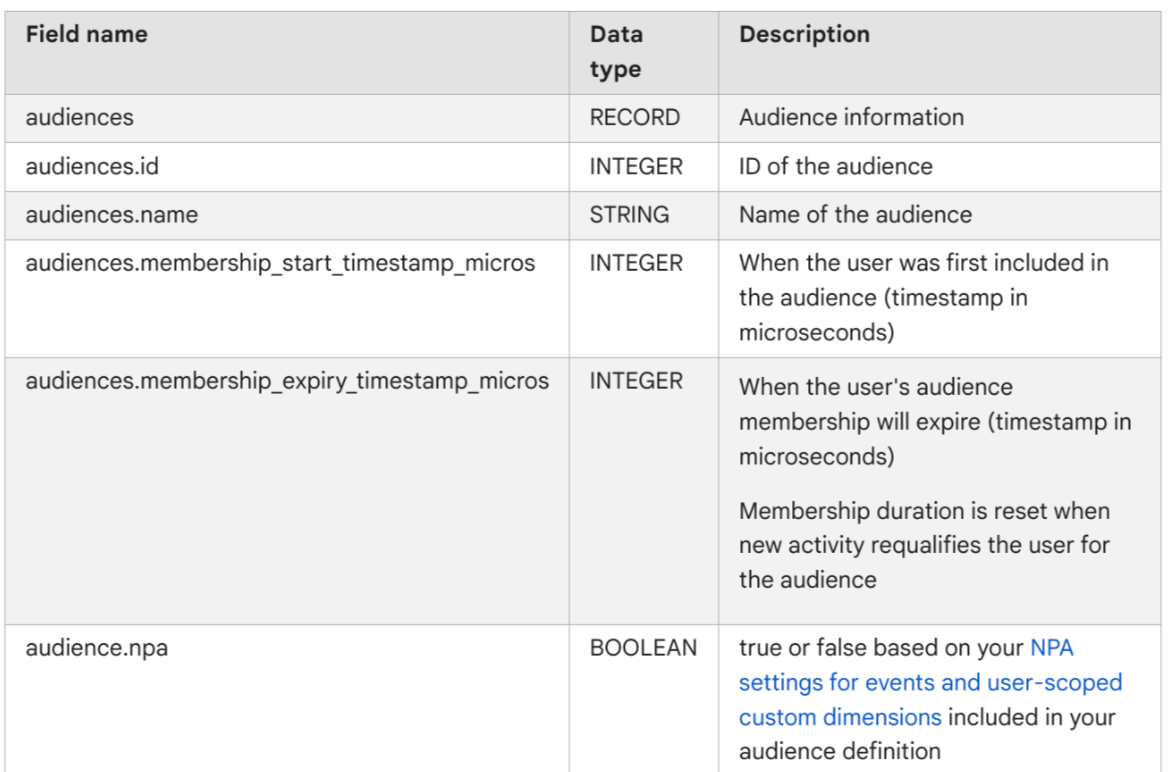
LifeTime Value Info:
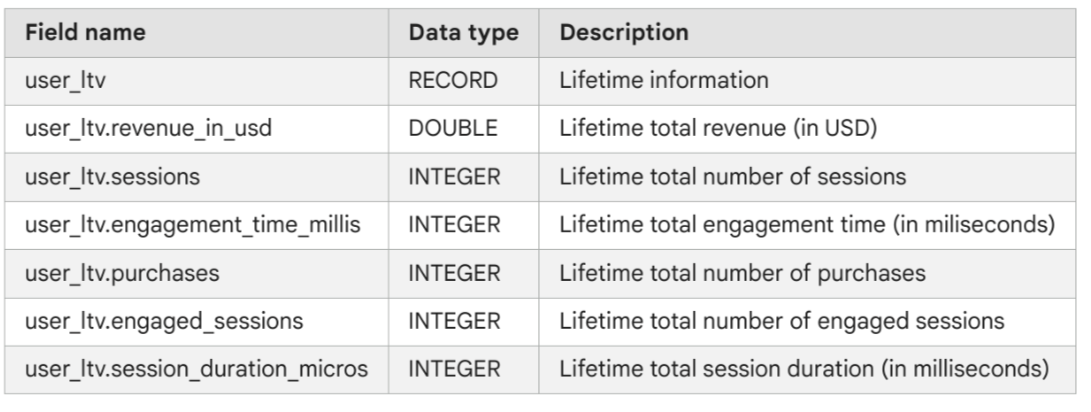
GA4 User Data Export's uniqueness lies in its adaptability. It's not about remaining confined to Google's realm but expanding horizons by assimilating data from various platforms. This promises an enhanced grasp over user behaviors, ensuring strategies are not just effective but precisely targeted.
GA4 User Data Export to BigQuery mirrors the evolution of Marketing Analytics. In a dynamic digital environment, where businesses crave advanced tools to decode their audience, GA4 isn't merely about insights.
It's about adaptability, integration, and ensuring businesses are always a step ahead.


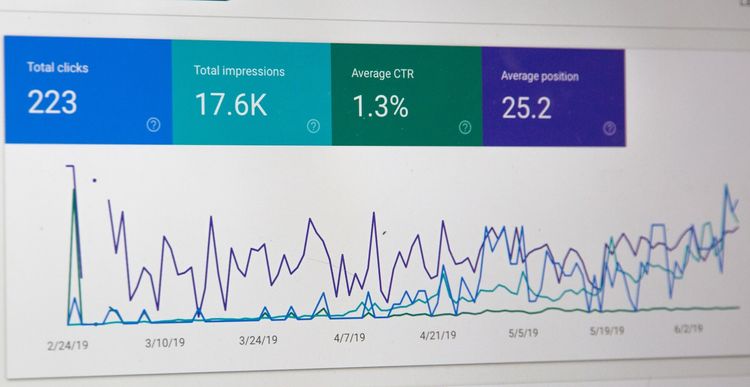


Member discussion